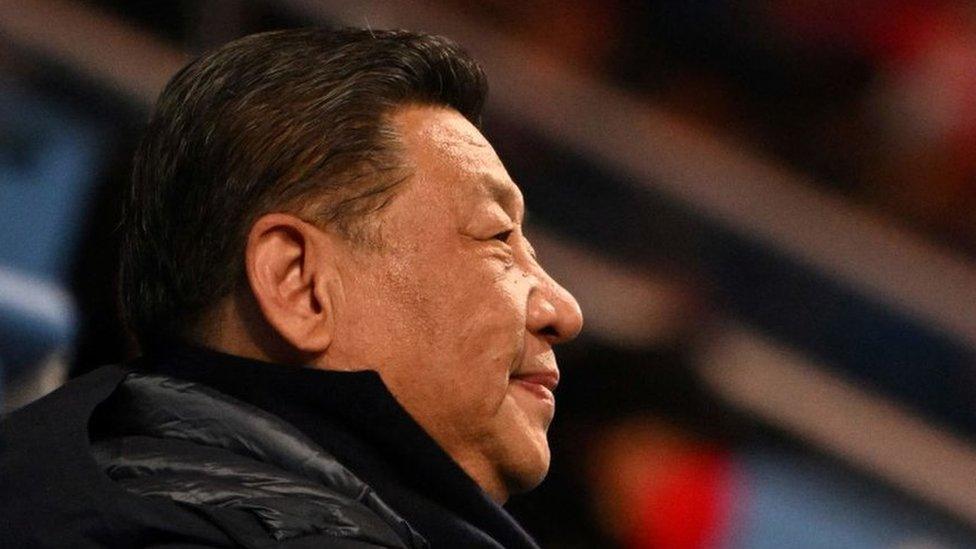Jiang Zemin obituary: China's tough-talking reformer
- Published
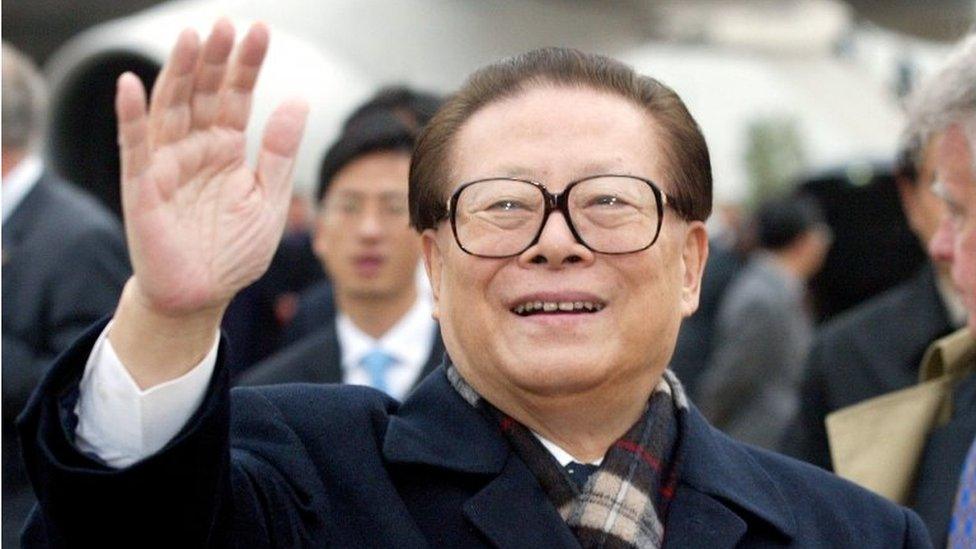
Jiang Zemin, who has died aged 96, became China's leader after the bloody 1989 Tiananmen Square protests. He will be remembered for presiding over a decade of breakneck economic growth and rising prosperity in China as it mended fences with the West and became a global superpower.
He oversaw notable events like China's entry into the World Trade Organization, and the handover of Hong Kong from the British to the Chinese.
Jiang was picked to lead China after the Tiananmen protests - and got his message across to the Chinese population that the movement towards greater democracy would not be tolerated.
His death came as China experienced some of its most serious protests - against coronavirus pandemic restrictions - since Tiananmen.
But Jiang himself has been remembered fondly by many - with younger people seeing him as having a more colourful personality at a time when China is growing increasingly authoritarian and closed-off.
Humble beginnings
Jiang was born on 17 August 1926 in the city of Yangzhou, in China's eastern coastal province of Jiangsu.
He grew up during the Japanese occupation, eventually graduating as an electrical engineer.
He joined the Communist Party at the age of 21 while he was still at college. His family had no revolutionary pedigree and under the frequent purges of Mao Zedong, Jiang could well have suffered for his background.
But he spent much of his early career abroad - training in Moscow at a Soviet car factory, and later as a diplomat in Romania.
By the 1980s, he had become the minister in charge of the electronics industry, and later became party chief in Shanghai. But he still had made no mark in national affairs.
The crucial moment that brought him to prominence was the Tiananmen Square protests.
As the national rulers dithered over how to handle the occupation of Tiananmen Square by young protesters, Jiang had already faced down similar protests in Shanghai.
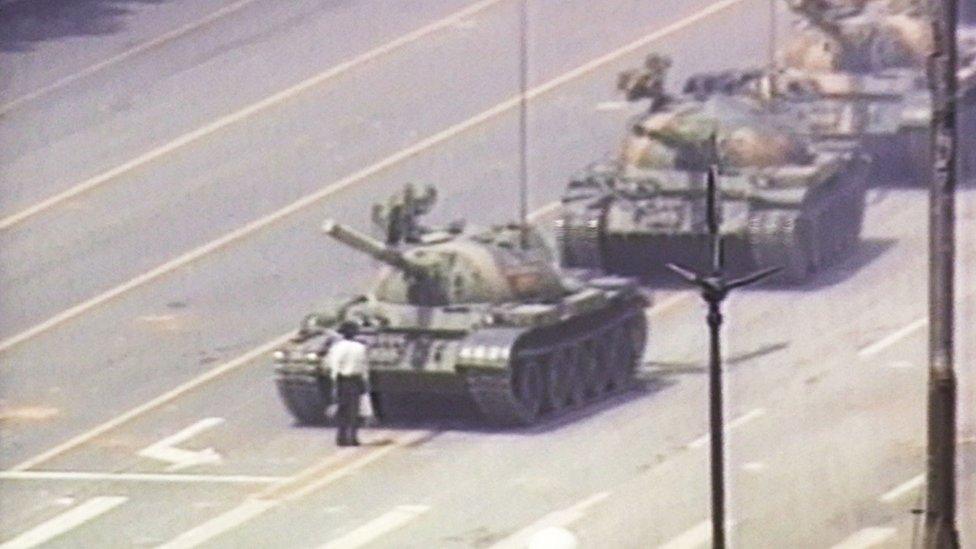
Discussion of what happened in Tiananmen Square in 1989 is still strictly controlled in China
He closed a newspaper he felt had fuelled the protests, and stunned students by addressing them in English, quoting part of the Gettysburg address.
The demonstrations were quelled without resorting to force, a lesson that was not lost on the then Chinese leader, Deng Xiaoping.
Deng was forced to choose between the squabbling factions. He sided with the hardliners, purged the liberals, and appointed Jiang as the Communist Party's general secretary, effectively marking him his protégé and heir apparent.
Jiang's approach to dissent was robust. "Both democracy and human rights are relative concepts, and not absolute and general," he said.
However, few China-watchers gave Jiang much of a chance. His enormous glasses, dour demeanour and idiosyncratic style of wearing trousers pulled up almost to his chest appeared to mark him out as a dull bureaucrat.
He had been nicknamed The Flowerpot by people in his former fiefdom of Shanghai. Lots of decoration, no action, and many assumed he would be a transitional figure.
He proved them wrong.
The approach to dissent
Concerned that the pace of much-needed reforms might be slowed, or even halted, Deng began to express reservations about Jiang's zeal.
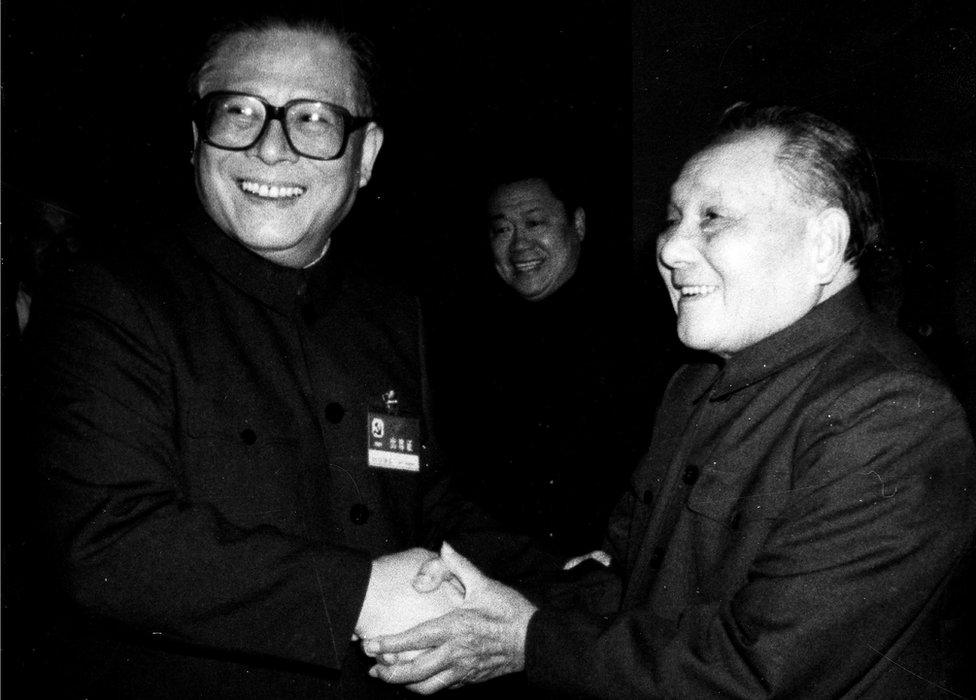
Deng Xiaoping picked the younger Jiang as his heir apparent
The younger man got the message and gave his support to a new set of economic reforms. Out went the old-fashioned centrally controlled socialist economy.
In came a new commitment to capitalism, albeit a style of market economics that would still be firmly under government control.
By 1993, Jiang had formally taken over as president, and had already been appointed as head of the military commission - meaning he now held all three of the most powerful offices of state.
By the time Deng died in February 1997, Jiang had been given enough time to establish himself, and had padded out many of the top jobs with his close allies from Shanghai.
After Deng, the ill-defined role of paramount leader was abandoned, and Jiang ruled alongside Premier Zhu Rongji.
Home and abroad
But he was also keen to ensure that his position within the Communist Party was secure against the almost continual manoeuvring and plotting that typified Chinese politics.
Jiang crushed internal dissent, suppressing the Falun Gong spiritual movement, and pursued a hard-line stance on Taiwan, endearing himself to the Chinese military - although he was quick to remind them who was in charge.
"Our army is the people's army," he said, "that is under the absolute leadership of the party."
As is customary for Chinese leaders, he also expounded impenetrable communist philosophies - his was called the Three Representations theory and involved an attempt to modernise the party.
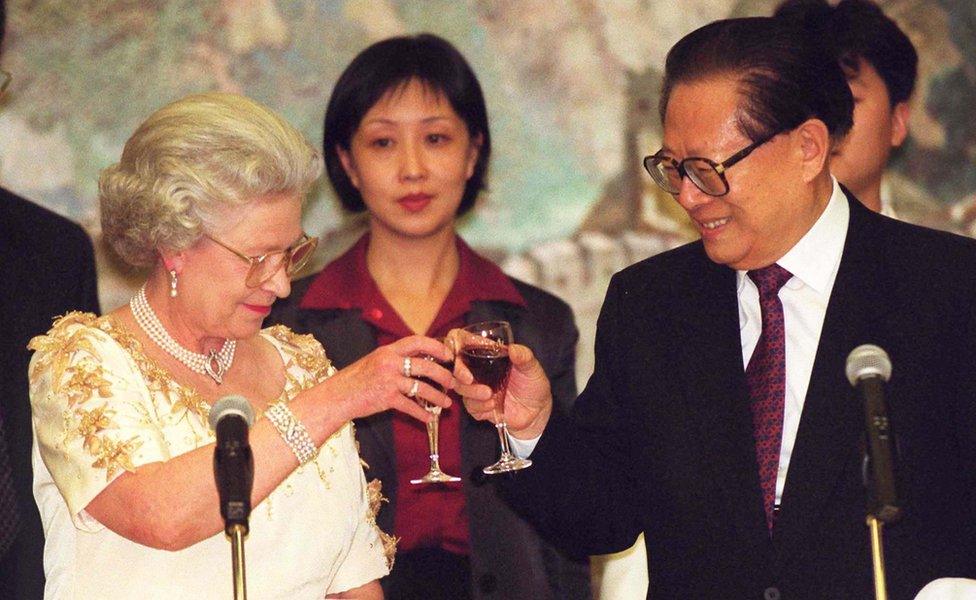
His state visit to the UK was the first by a Chinese Communist leader
Secure in his dominance at home, Jiang set about raising China's profile abroad.
He turned in some memorable performances - among them a stirring rendition of Elvis Presley's Love Me Tender after a dinner with Philippine President Fidel Ramos at an Asian economic forum in 1996.
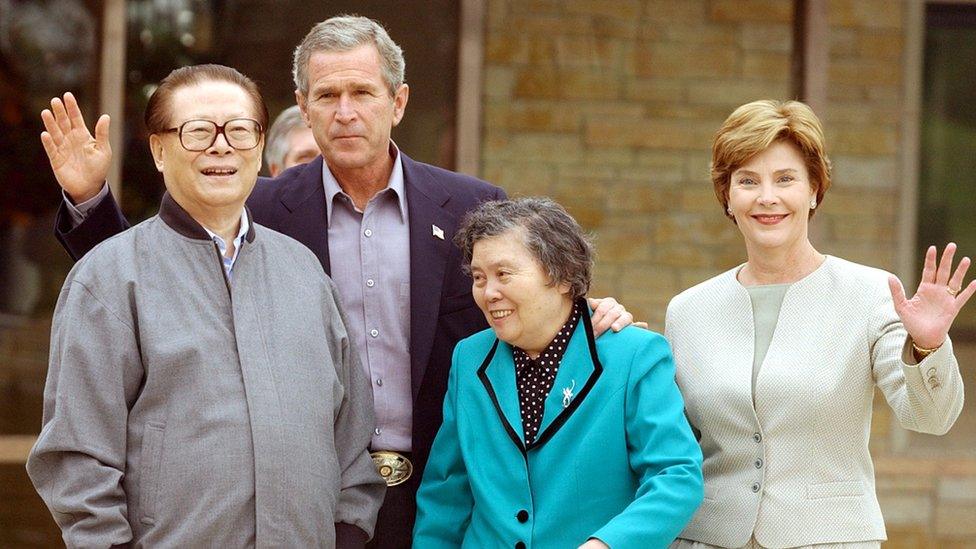
Jiang made several trips to the US during his leadership
In 1999, Jiang paid a highly controversial state visit to the UK - the first by a Chinese head of state. He also visited the US several times, and deepened China's integration with the global economy by joining the World Trade Organization.
The friendship with the US was most clearly illustrated by the co-operation he offered in Washington's "war on terror" following the 11 September 2001 attacks.
A symbol of a foregone era
He began the leadership transition in November 2002, when he gave Hu Jintao the post of party chief. Hu also succeeded Jiang as president in March 2003.
In September 2004, Jiang stepped down from his final major political post as chairman of the commission overseeing China's armed forces.
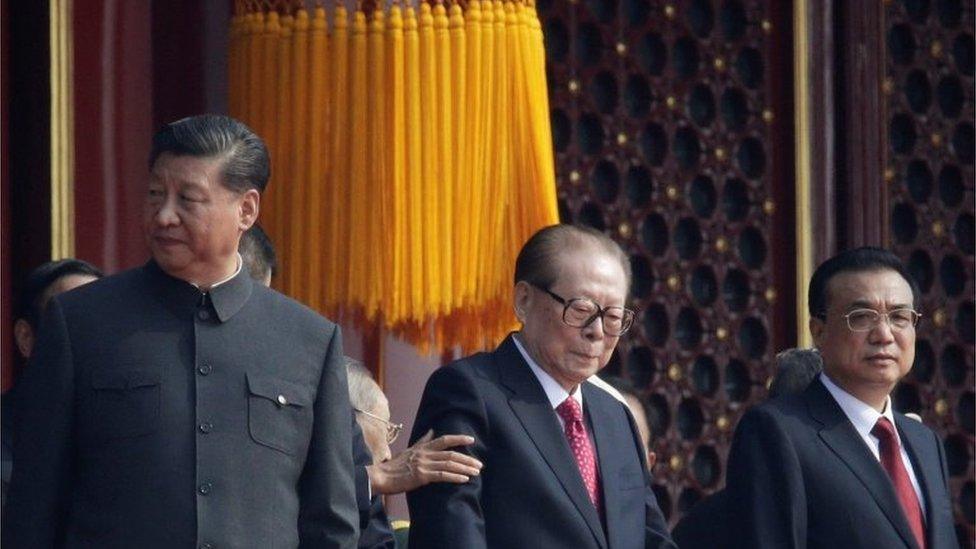
Jiang was last seen in public in 2019, flanked here by President Xi Jinping (left) and then Premier Li Keqiang
He withdrew completely from government and for years, was rarely seen in public.
He did make an appearance at the opening ceremony of the Beijing Olympics in 2008, an event he had played a key role in securing for China.
And he remained influential in Chinese politics, re-emerging in 2012 as once again, the question of the leadership succession was being debated.
Jiang, who is survived by his wife Wang Yeping and their two sons, was last seen in public in 2019, where he attended the 70th anniversary celebrations of the founding of the PRC.
His absence from the 20th Communist Party Congress in October was seen as a sign of ailing health.
In his last years, Jiang became an unlikely hero for many younger Chinese.
They nicknamed him "Toad" for his appearance, with his fans calling themselves "Toad worshippers".
To them, he was a symbol of a more liberal, forgone era in China.
Others have warned against overlooking Jiang Zemin's shortcomings.
Wang Dan, one of the 1989 student leaders who now lives outside China, called him "a typical political opportunist".
"Jiang Zemin appeared to be open-minded, but in fact he tried to change back to a planned economy... but was stopped by Deng Xiaoping. He has always been a conservative politically," he tweeted, external (in Chinese).
Johnny Lau, a Hong Kong-based political commentator, says China could have opened up more under Jiang.
"He came to power after the 1989 Tiananmen Square crackdown and he continued Deng Xiaoping's reform. So he made a contribution to China's progress in some way, as many worried if China would reverse its course at that time," Mr Lau told the BBC.
"After he secured power, he should have launched some political reforms - but he didn't."
Additional reporting by the BBC's Grace Tsoi
Related topics
- Published25 August 2023
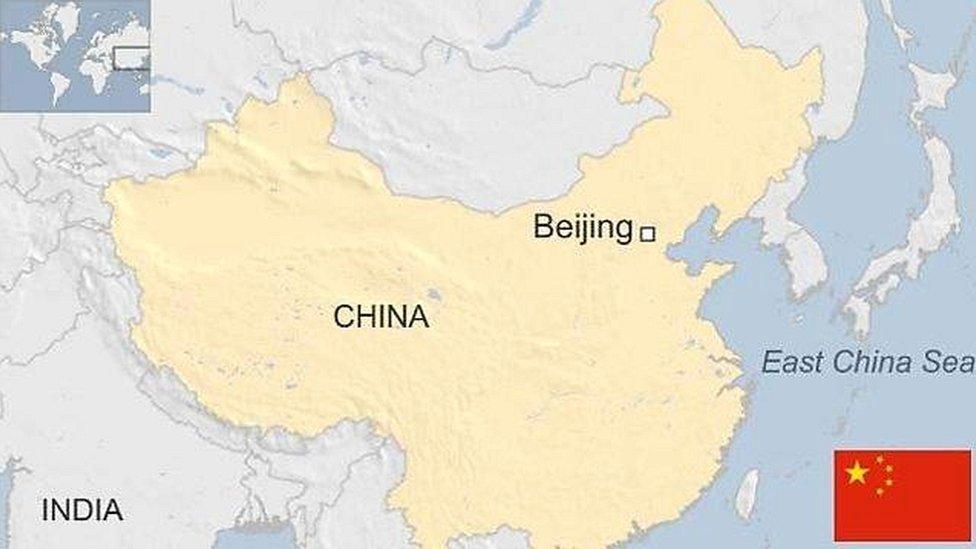
- Published10 October 2022
